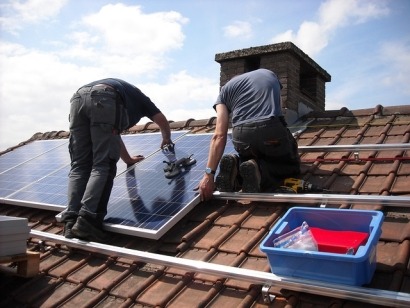
Within the next seven years, the global renewable energy industry will need another 1.1 million blue-collar workers to design and build solar and wind farms and an additional 1.7 million to maintain them. For perspective, that’s equivalent to the entire population of Jamaica — yet the roles remain empty.
Baby Boomers retiring: Many workers have reached retirement age, but younger workers increasingly choose college over trade school. People are leaving the energy industry faster than new hires are replacing them.
Few career development opportunities: It’s hard to switch roles or progress in a current position in many energy jobs.
COVID-19: Millions of workers died during the pandemic. Others suffered long-term complications that prevent them from doing manual labor.
Remote work: Just a few years ago, people living in rural areas were limited to nearby jobs, including renewable energy positions. Remote work means people can look for better opportunities in other states or countries.
Competition: Large oil and gas companies typically offer better compensation than renewable power businesses.
High cost of living: Workers are demanding higher salaries to meet rising food and rent costs. Many blue-collar renewable energy jobs entail low pay and tough working conditions, so few people gravitate toward them.
These issues come to a head when factoring in the explosive growth of the renewables sector. In 2016, the wind industry grew by 32% and employment in solar power increased by 25%. Green energy has become a crucial industry as many businesses try to decarbonize their supply chains, and it will only keep growing.
Renewable power companies have several options for addressing the labor shortage. They can:
Retaining talented employees is one part of the equation. Sometimes, something as simple as better workplace communication can improve employee morale and boost retention rates. Managers should also praise employees for their efforts and ask for feedback regularly.
In 2021, the average salary of a contracted oil and gas employee was $94,426 per year, while jobs in the renewables sector paid $80,006. Although $80,006 is above the national average salary, some workers who have children or reside in areas with high costs of living need a higher wage. A more competitive salary and benefits package can attract and retain skilled energy professionals.
Many potentially excellent candidates apply for renewable energy jobs but get rejected due to a lack of formal training. Even entry-level positions can be out of reach for job seekers without a degree or certifications. Energy companies should provide on-the-job training to bring new hires up to speed. Ongoing training is also essential for keeping existing employees qualified and helping them continually improve.
Although some employees are content to stay in the same position for years, others have an ambitious drive for upward growth. For these workers, staying in the same role may feel frustrating and create a sense of stagnation. Energy companies should allow workers to take on more responsibilities or earn raises as they progress in their careers.
Embracing renewable energy is no longer an unconventional, pioneering practice like it was merely a few decades ago. The whole world is shifting toward a more sustainable way of life, and renewable power is leading the charge.
The renewable energy sector’s explosive growth comes at a time when many industries face labor shortages. However, power companies can make changes to their business models to improve retention rates and hire more talent. The world depends on skilled energy workers to make the transition to greener living.

